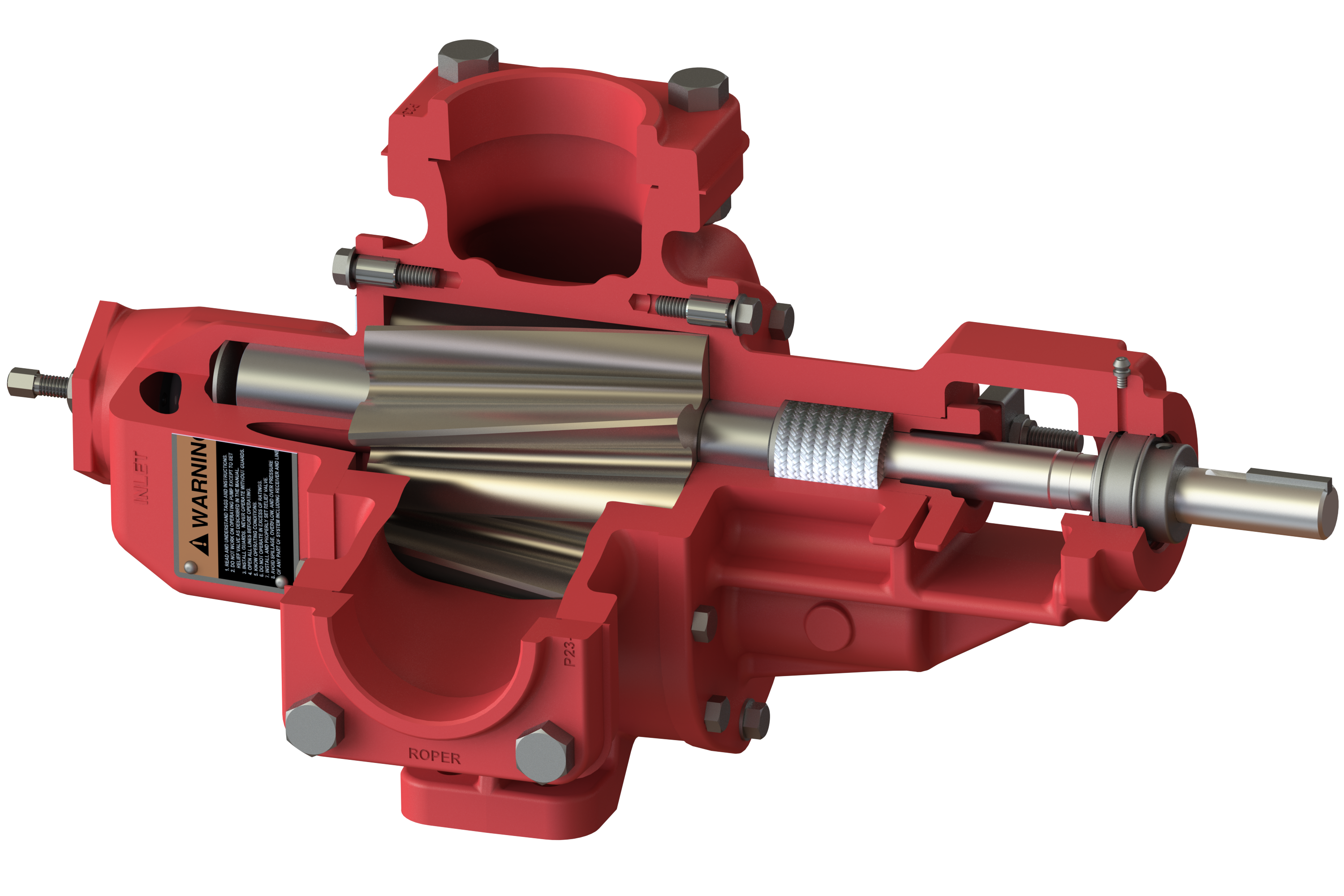
When selecting a pump for handling industrial chemicals, precision, efficiency, and durability are paramount. Chemical gear pumps and centrifugal pumps stand out as two popular choices for this purpose. But how do you determine which one is best suited for your process? This comparative analysis will explore the workings, advantages, and applications of chemical gear pumps and centrifugal pumps to help you make an informed decision.
What Are Chemical Gear Pumps and Centrifugal Pumps?
Before we dive into the comparison, it’s essential to understand how these pumps work. Both have distinct designs and functions that make them suitable for specific industrial needs.
Chemical Gear Pumps
Chemical gear pumps are positive displacement pumps that move liquids by trapping them in the gear teeth. A pair of rotating gears intermesh to create a continuous flow of liquid. This precise, consistent flow makes them ideal for applications where accuracy is critical, such as in chemical injection systems or dosing.
Key Features of Chemical Gear Pumps:
- High-pressure capabilities
- Handles viscous liquids effectively
- Provides a steady, controlled flow
Typical industries using chemical gear pumps include oil and gas, chemical processing, and pharmaceuticals.
Centrifugal Pumps
Centrifugal pumps use an impeller that spins rapidly to create centrifugal force, moving liquids through the pump. They are a more generalized solution often used for transferring large volumes of liquid quickly in less precise applications.
Key Features of Centrifugal Pumps:
- Suitable for high-flow, low-pressure operations
- Best for pumping low-viscosity fluids (like water or solvents)
- Simple design with fewer moving parts
Centrifugal pumps are commonly found in water treatment plants, HVAC systems, and irrigation systems.
Now that we know the basics of these two pumps, let’s analyze how they compare across critical factors.
Key Differences Between Chemical Gear Pumps and Centrifugal Pumps
- Flow Rate and Precision
- Chemical Gear Pumps offer unparalleled precision. With a steady, non-pulsating flow, these pumps are perfect for applications requiring consistent dosing or transfer rates. For instance, they excel in applications like dispensing chemicals in exact amounts for manufacturing processes.
- Centrifugal Pumps prioritize volume over precision. They’re well-suited for rapid transfer of large quantities of fluid but are less reliable for maintaining consistent flow rates.
When to Choose:
Go with chemical gear pumps when accuracy is critical. Choosing centrifugal pumps when moving large fluid volumes efficiently is the priority.
- Handling Viscous Fluids
- Chemical Gear Pumps are specifically designed to handle viscous and thick fluids, such as oils, syrups, or resins. Their positive displacement mechanism ensures smooth operation even with challenging mediums.
- Centrifugal Pumps struggle with high-viscosity fluids. Their performance significantly drops when handling thick liquids, making them less suitable for such applications.
When to Choose:
Chemical gear pumps are your best bet for pumping viscous liquids.
- Operating Pressure
- Chemical Gear Pumps are adept at handling high-pressure applications. Their robust design allows them to work efficiently even in demanding conditions.
- Centrifugal Pumps operate better at lower pressures. High-pressure applications can reduce their efficiency and lifespan.
When to Choose:
Opt for chemical gear pumps in high-pressure environments, such as delivering chemicals to reactors or pipelines.
- Temperature Tolerance
Both pump types can handle a wide range of temperatures depending on their materials. That said:
- Chemical Gear Pumps often have better adaptability for extreme temperatures, particularly high-viscosity fluids that become less viscous when heated.
- Centrifugal Pumps are also effective in temperature tolerance but shine more with low-viscosity or neutral fluids.
When to Choose:
Consider the specific temperature profile of your application, but gear-type pumps are often preferred for extreme conditions.
- Energy Efficiency
- Centrifugal Pumps are generally more energy-efficient when operating at their design points, especially for high-flow applications.
- Chemical Gear Pumps can consume more energy due to their design, especially when handling extremely viscous materials. However, their efficiency remains consistent across varying operating conditions.
When to Choose:
Centrifugal pumps are preferable for energy optimization in high-volume, low-viscosity liquid transfer scenarios.
- Maintenance and Durability
- Chemical Gear Pumps are robust but require regular maintenance due to their complex structure and the flexible tolerance needed for precision tasks.
- Centrifugal Pumps are simpler in design and easier to maintain, as they have fewer moving parts.
When to Choose:
If ease of maintenance is a priority, centrifugal pumps could be the right choice, but gear type pumps are worth the effort for applications demanding high precision.
Industrial Applications Matching Pump Types
Understanding the key differences can help pinpoint which pump is best suited for your industry needs.
Applications for Chemical Gear Pumps:
- Chemical injection systems in the oil and gas industry
- Handling adhesives, resins, or syrups in manufacturing plants
- Specialized pharmaceutical dosing processes
Applications for Centrifugal Pumps:
- Municipal water treatment facilities
- Cooling systems in industrial settings
- Agricultural irrigation systems
How to Choose the Right Pump for Your Needs
Your choice ultimately hinges on your specific industrial application and operational requirements. Ask yourself these questions:
- What viscosity and composition does the liquid you’re pumping have?
- Is precision more crucial than speed (or vice versa)?
- What are your operating pressure and flow rate needs?
- How important is ease of maintenance to your operations?
If you’re dealing with a thick, viscous fluid or require precise flow rates, chemical gear pumps are the optimal choice. Meanwhile, for high-volume, low-pressure applications involving less viscous liquids, centrifugal pumps take the lead.
Achieve Peak Pump Performance with Expert Guidance
Both chemical and centrifugal gear type pumps are indispensable tools in a wide range of industries, each offering unique benefits tailored to specific operational demands. Choosing the right one requires understanding your business needs and aligning them with the pump’s capabilities.
